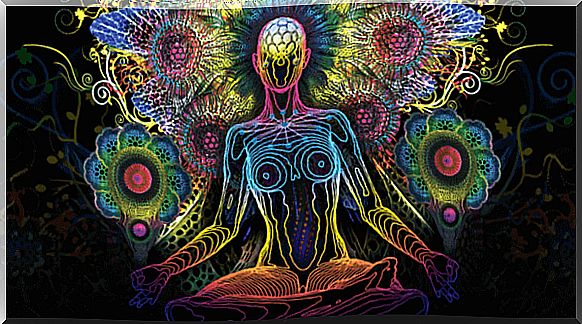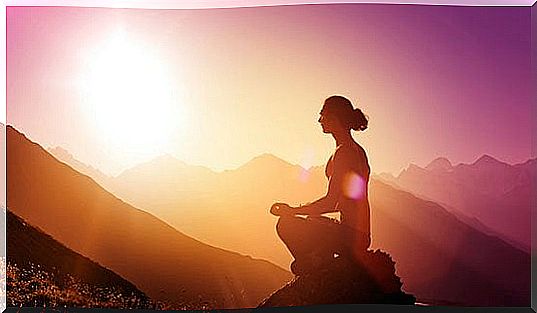5 Meditation Mantras You Can Try

Meditation mantras are words or expressions that help us to adopt an attitude with greater concentration and focus. Humans have been using such linguistic formulas for a long time.
Almost every culture has given special value to certain words or expressions. In many cultures, they even give them a sacred meaning.
The word “mantra” comes from Sanskrit. It consists of two roots: “man”, which means mind and “tra”, which means protection. So the word “mantra” means protection of the mind.
People who use meditation mantras say that the mind is like the sea. Sometimes it is calm, but other times it moves energetically. This is especially true when something changes it, whether it is someone else’s action or a storm.
That is when we should put mantras into practice. They help us calm down and give us some peace.
The secret of the mantra
There are words, expressions and sounds that promote a greater state of relaxation. Mantras are a valuable resource for restoring peace, tranquility and strength in times of great agitation.
Without making an inner effort in our mind, it easily gets over-excited. It also fills up with violence, anxiety and unrest. When we use a mantra, our mind returns to a calm state.

Mantras have many benefits. For example, they will:
- Help reduce our levels of tension and anxiety.
- Calm our minds, and help ease our internal conflicts and improve self-control.
- Increase our willpower and strength, and thus help us achieve our goals.
- Help us release positive emotions such as patience, empathy, generosity, etc.
Mantras work in a certain way as unconscious messages. They are content meant for our subconscious. They go beyond the threshold of our consciousness and penetrate into the deepest realms of our minds.
This is how they achieve their goal: to bring us to a state of positive consciousness.
Classical meditation mantras
Some meditation mantras already have a long tradition. The most famous come from Buddhism and Hindu culture. In both of these cultures, meditation has a deep value.
There are five meditation mantras that people have used for thousands of years. Here they are:
- OM. This is the most universal meditation mantra. In fact, they say it represents the sound of the universe. It is the sound from the beginning, the basic sound, the one that contains all other sounds.
- OM AH HUM. When we utter this mantra, we cleanse the place where we are to do our meditation. In addition, the sound helps to improve concentration.
- ABOUT TARE TUTTARE. This mantra helps to concentrate our inner strength. We use it to get rid of internal obstacles. It also encourages bravery and trust.
- ABOUT NAMAH SHIVAYA. It is a mantra that comes from Hindus. We pronounce it for well-being and well-being.
- ABOUT MANI PADME HUM. This is one of the most powerful meditation mantras. It calls for essential wisdom, fellowship with the universe.
Now the most important part of these mantras is their sound. Buddhists insist that we should not reflect too much on what they mean. The essence of it all is in the phonemes and the effects they have on our consciousness.
Personal mantras
Everyone can create their own personal meditation mantras. They do not even have to be for meditation, they can only be to calm and strengthen yourself.
They are just words and short sentences that have a special power over us. It does not matter if they do not have a clear meaning. What is important is that they connect us with a sense of peace and strength.

Examples of personal mantras can be: “GO FORWARD”, “GROW”, “I AM STRONG”, “I AM GOOD”, or similar expressions. It is best to use them for a while and then change them. This is because repetition gradually reduces the power of their influence on our minds.
Experts on the subject recommend that we avoid using the word “NOT” in a mantra. They say it has the ability to block us. So, we should formulate our expressions in positive terms. Instead of saying “I AM NOT AFRAID”, we should confirm: “I AM COURAGEOUS”.
Let us not forget that the value of a mantra lies mainly in its ability to connect to the internal power we all have.









